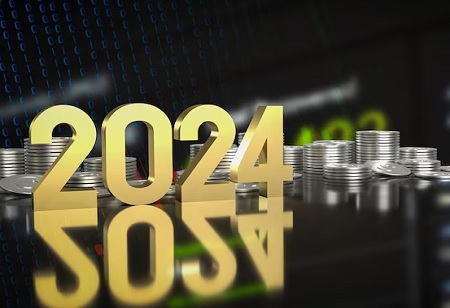
Budget 2024: Possible Fiscal Trade-Offs with Emphasis on Capex

 Adhering to the path of fiscal consolidation in the forthcoming interim Union budget may involve making choices between reducing capital expenditure and subsidies, as these factors pose challenges to the fiscal glide path, as per economists. The government's stated goal is to keep the fiscal deficit at 5.9% of GDP in FY24, with a further reduction to 4.5% of GDP in FY26. Economists point out that the increasing pressure arises from time constraints and escalating global challenges impacting subsidies.
Adhering to the path of fiscal consolidation in the forthcoming interim Union budget may involve making choices between reducing capital expenditure and subsidies, as these factors pose challenges to the fiscal glide path, as per economists. The government's stated goal is to keep the fiscal deficit at 5.9% of GDP in FY24, with a further reduction to 4.5% of GDP in FY26. Economists point out that the increasing pressure arises from time constraints and escalating global challenges impacting subsidies.
"Our anticipation is also that if we intend to adhere to the medium-term fiscal deficit target, there are only two more years to achieve it. Therefore, at least half of the gap between our current position in FY24 and the target for FY26 needs to be bridged in FY25", explained Aditi Nayar, Chief Economist at ICRA. This suggests a modest growth in revenue expenditure and limited room for a 10% increase in capital expenditure compared to the actual capex turnout in FY24 to attain a fiscal deficit closer to 5.3% in FY25, she added. Lekha Chakraborty, a professor at the National Institute of Public Finance and Policy, emphasized the importance of the government's 'fiscal marksmanship', cautioning against macroeconomic consequences tied to expenditure compression.
"We need to scrutinize the budget credibility or fiscal marksmanship aspect in relation to disinvestment proceeds as well because it's not working out. Currently, taxes are buoyant, so the path to consolidation through this tax buoyancy is okay...," she stated. Nayar proposed that in FY25, capex could grow by around 10% to align with the fiscal calculations. "For every 10 basis points of a higher fiscal deficit that we're willing to accept, we could allocate around Rs 32,500 crore for higher capex," she explained. Yuvika Singhal, an economist at QuantEco Research, foresees FY25 as the year when capex gains momentum.
Singhal noted that government capex has played a positive role amid the Covid-19 backdrop, but questions persist about its impact on stimulating private investment. "...we have witnessed some movement in private capex, although perhaps not to the extent we desired; however, there has been notable progress during FY24. Perhaps, once the uncertainties related to the election cycle are behind us, we could witness a more comprehensive buildup in the private capex cycle", she expressed. "Historically, we have observed that typically in the two to three quarters preceding general elections, corporates refrain from announcing new investments, primarily due to the avoidance of uncertainty", Singhal added.
Despite this, the government remains committed to promoting more private investments. Chief Economic Advisor V Anantha Nageswaran, speaking at a CII-DEA event in December 2023, emphasized that the current decade will be marked by uncertainty. He urged the corporate sector to embrace uncertainty and initiate investments, stating that waiting for demand to rise before investing could delay favorable demand conditions. The CEA, in his outlook after the release of H1 FY24 GDP data, also highlighted expectations of stronger investment growth in the private sector, supported by the government’s capex push for the rest of the year.